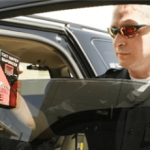Getting Your Car Back! Detroit Vehicle Seizures and Forfeiture Summary
The Fastest Way to Get Your Car Back
If your vehicle has been seized, and you need it back quickly, the quickest and easiest way to get it back is to pay the $900.00 demanded by the Wayne County Prosecutor's Office. You need your proof of ownership and a certified check. You will take this to the Wayne County Prosecutor's Office at 5301 Russell Street, Suite 200, Detroit 48211. The general office number is (313) 224-5777, but that is a general number. Be nice to that person because she is overworked and underpaid. If you pay these sums, you will still need to pay the tow yard.
Instead of bothering the receptionist, you should call the number listed on your seizure paperwork and leave a message. They will not call you back promptly because the prosecutors are waiting on the police to provide your paperwork. There is no rush on their part, and they lack empathy and sympathy. They are also busy calling other people back before you. If you want, you can also call Brian Surma at (313) 224-5830, Brian Moody at (313) 224-5831, Charles Davis at (313) 224-8524, and Fadi Yaldo at (313) 967-6934. Calling these prosecutors will not speed up the process, but it will annoy them, which is why I have provided you with their telephone numbers. When you leave your message, tell them that you are a victim of Policing for Profit. You can also call Mahmoud Awad at (313) 202-7114. He no longer works for the forfeiture unit, but it's still fun to leave him a message regarding civil asset forfeiture cases.
Vehicle Drug Seizures
If your vehicle was seized due to the presence of illegal drugs, my primary concerns will be whether the traffic stop was lawful and whether the drugs were discovered through a legal or illegal search. Unfortunately, I receive many calls from individuals who were lawfully stopped and voluntarily admitted to having heroin in their vehicle. In such cases, there is little I can do to assist you. Your best course of action is to pay the $900.00 fine and get help. But if you're stopped outside a legal dispensary simply because the police watched you leave the business, call me. I think that this practice has finally stopped, but the Wayne County Prosecutor's Office and various police departments never cease to amaze me. Read:
How to contest a forfeiture case in Wayne County Michigan
Forfeiture of Cash, Property and Other Assets for Drugs and Controlled Substances in Wayne County
And file a forfeiture FOIA request for the relevant materials.
OWI Vehicle Seizures
I have not seen a drunk driving forfeiture since I beat the Wayne County Prosecutor's Office in the Garden City District Court a year or two ago, but if the impound lot is refusing to release your vehicle after a drunk driving arrest, call me!
Detroit Drag Racing Vehicle Seizures
Drag racing has long been a part of Detroit’s car culture, fueled by the city’s rich automotive history. However, what once represented innovation and craftsmanship has evolved into a dangerous, illegal activity on Detroit’s streets. While some see it as harmless excitement, drag racing poses serious risks to public safety, disrupts neighborhoods, and strains law enforcement resources.
Illegal drag racing in Detroit typically takes place late at night, drawing crowds to watch modified cars race at high speeds. These events often happen on main roads, industrial areas, and even residential streets, endangering participants, spectators, and uninvolved drivers. The risks include accidents, property damage, and even fatalities.
As much as I might sympathize with efforts to prevent drag racing, it has been subject to widespread abuse, and I have argued cases in the Michigan Court of Appeals that the Wayne County ordinance is unlawful. A 2023 ruling from the 6th Circuit Court of Appeals found that Wayne County's vehicle forfeiture program violated due process rights and was unconstitutional. The court noted that the program was motivated by profit, not public safety. The court found that the county's practice of returning vehicles to owners who paid a fee proved that the program was a way to extort money from those who could least afford it.






